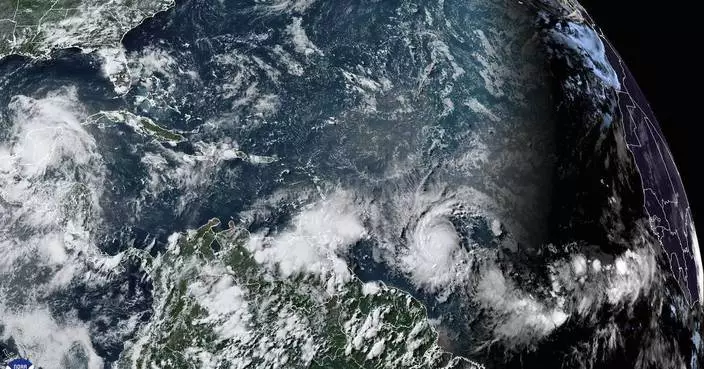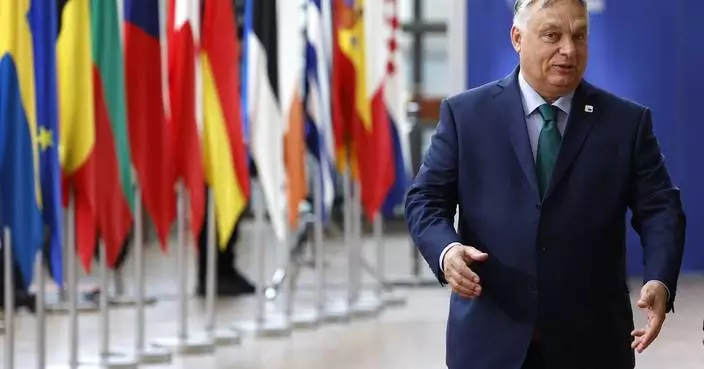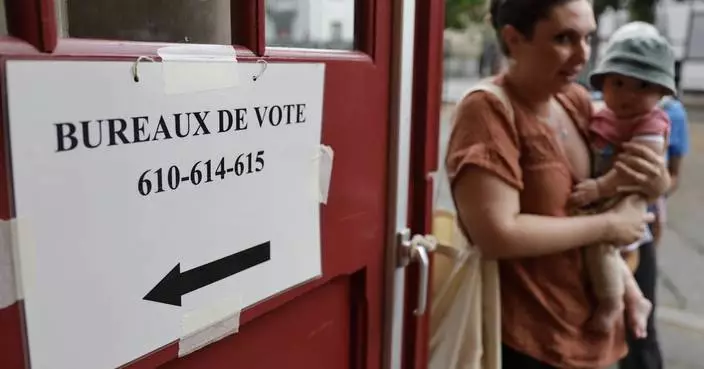SAN DIEGO (AP) — About 300,000 Haitians already in the United States will now be eligible for temporary legal status allowing them to remain in the U.S. and work because conditions in the strife-torn Caribbean nation are considered unsafe for them to return, the Homeland Security Department said Friday.
The decision marks a major expansion of Temporary Protected Status for Haitians and won praise from many in the Haitian and immigration advocacy community.
The TPS designation was created by Congress in 1990 to prevent deportations to countries suffering natural disasters or civil strife. The Homeland Security secretary can grant temporary protection for different nationalities based on conditions in their home countries. It’s generally for a designated period, and people have to apply for the protection and prove they qualify for it. The protection also allows them to apply for a work permit.
This expansion will apply to Haitians who were in the United States on June 3 and will last until Feb. 3, 2026. Anyone arriving after June 3 would not qualify. Separately, Mayorkas also extended the Temporary Protected Status of an estimated 200,000 Haitians who already had it. Their extension will also last through Feb. 3, 2026.
The move — one of the largest expansions of TPS — draws another sharp policy contrast on immigration between President Joe Biden and his predecessor, Donald Trump, who sought to end temporary status for many countries, including Haiti, during his tenure in the White House.
Gangs have pillaged their way through the Haitian capital of Port-au-Prince and surrounding areas, killing, raping and kidnapping thousands of people in recent years and leaving hundreds of thousands of others homeless and unemployed, which in turn has deepened poverty.
“Several regions in Haiti continue to face violence or insecurity, and many have limited access to safety, health care, food, and water,” Homeland Security said in a press release. “Haiti is particularly prone to flooding and mudslides, and often experiences significant damage due to storms, flooding, and earthquakes. These overlapping humanitarian challenges have resulted in ongoing urgent humanitarian needs.”
About 200,000 Haitians already have TPS under previous offers, according to the Congressional Research Service, the first one after a devastating earthquake in 2010 and the second amid political turmoil in 2021.
One of those people is Fanor Massolas. He's originally from a town in southern Haiti. He qualified for the temporary protection granted in 2010. With it, he's able to work at the Los Angeles airport where he has a job with a contractor. He said it's always stressful wondering whether the protection will be renewed but it's better than not having any protection at all. Going back to Haiti is not an option, Massolas said.
Massolas said he considers the U.S. his home even though he doesn't have citizenship. This is where he lives, where he works, where he's been able to go to school and learn English.
“Every human being, first thing they need is safety wherever they are. I’m in a safe county," Massolas said. Speaking of Haiti he said: “Nobody is safe over there."
With the expansion announced Friday, Homeland Security estimated that an additional 309,000 Haitians will be eligible for the protected status.
Nearly 900,000 people from 16 countries are currently registered for TPS, with the largest nationalities hailing from Haiti, Venezuela, El Salvador, Honduras and Ukraine.
The TPS designation gives people legal authority to be in the country and the right to work but it doesn't provide them a long-term path to citizenship. And they are reliant on the government renewing the status when it expires, giving them little stability. Conservative critics have also said that over time the renewal of the protection status becomes automatic, regardless of what happens to country conditions.
Haiti has been a thorny challenge for an administration that has sought to discourage illegal crossings, most recently by temporarily suspending asylum processing for people who cross the border illegally. The administration said this week that arrests for illegal crossings have fallen more than 40% since asylum was halted.
In 2021, about 16,000 predominantly Haitian migrants assembled on the banks of the Rio Grande in the small Texas town of Del Rio, triggering large-scale deportations. Then border arrests of Haitians fell sharply, even before January 2023, when the administration introduced an online app, called CBP One, which is needed to enter the country legally at land crossings with Mexico, and began allowing up to 30,000 people a month from Cuba, Haiti, Nicaragua and Venezuela to fly to the country for two years if they have financial sponsors.
Haitians were arrested only 142 times for crossing the border illegally from Mexico in May, down from a peak of nearly 18,000 in September 2021, but some take the dangerous route by sea. On Wednesday, a group of more than 100 Haitians arrived in a sailboat off the lower Florida Keys.
The Haitian Bridge Alliance, like other advocacy groups, applauded the administration for “a crucial move,” while also urging it to halt deportations to Haiti.
But Homeland Security signaled that deportations would continue for those who try entering illegally, saying it “will continue to enforce U.S. laws and policy throughout the Florida Straits and the Caribbean region, as well as at the southwest border.”
__
Santana reported from Washington.
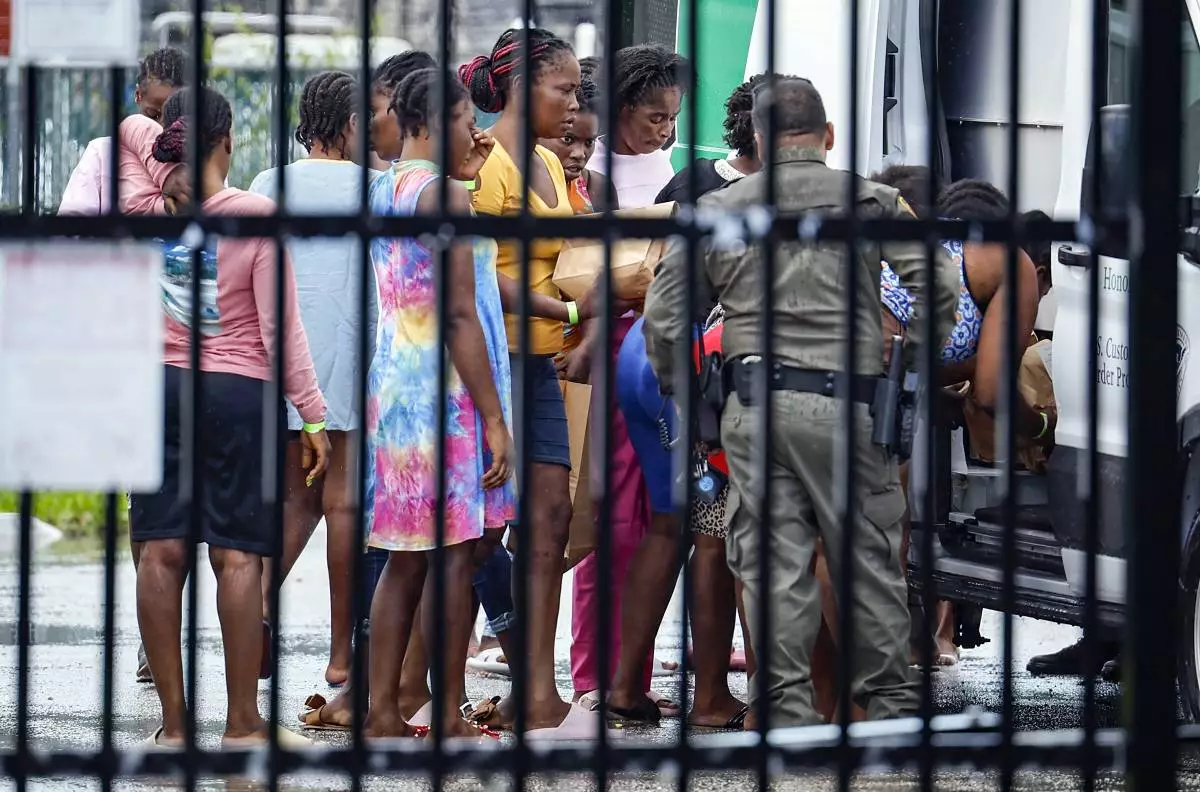
Migrants prepare to depart the U.S. Customs and Border Protection - Marathon Border Patrol Station in Marathon, Fla. on Wednesday, June 26, 2024. A group of more than 100 migrants from Haiti arrived off Key West in a sailboat early Wednesday morning, according to the Monroe County Sheriff's Office. (Al Diaz/Miami Herald via AP)

Homeland Security Secretary Alejandro Mayorkas speaks during a news conference in Tucson, Ariz., Wednesday, June 26, 2024. The Homeland Security Department says arrests for illegal border crossings have dropped more than 40% during the three weeks asylum processing has been suspended. (AP Photo/Jae C. Hong)
PARIS (AP) — Voters across mainland France have been casting ballots Sunday in the first round of an exceptional parliamentary election that could put France’s government in the hands of nationalist, far-right parties for the first time since the Nazi era.
The outcome of the two-round election, which will wrap up July 7, could impact European financial markets, Western support for Ukraine, and how France’s nuclear arsenal and global military force are managed.
Many French voters are frustrated about inflation and economic concerns, as well as President Emmanuel Macron’s leadership, which they see as arrogant and out-of-touch with their lives. Marine Le Pen’s anti-immigration National Rally party has tapped and fueled that discontent, notably via online platforms like TikTok, and dominated all preelection opinion polls.
A new coalition on the left, the New Popular Front, is also posing a challenge to the pro-business Macron and his centrist alliance Together for the Republic.
There are 49.5 million registered voters who will choose 577 members of the National Assembly, France's influential lower house of parliament, during the two-round voting.
Turnout at midday at the first round stood at 25.9 % according to interior ministry figures, which is higher from the 2022 legislative elections at this time of the day. It was 18.43% at midday two years ago.
Macron voted in a Paris voting station along with his wife, Brigitte Macron. Earlier, Marine Le Pen, leader of France’s resurgent National Rally, cast her ballot in her party’s stronghold in northern France.
The vote takes place during the traditional first week of summer vacation in France, and absentee ballot requests were at least five times higher than in the 2022 elections.
After a blitz campaign marred by rising hate speech, voting began early in France’s overseas territories, and polling stations opened in mainland France at 8 a.m. (0600 GMT) Sunday. The first polling projections are expected at 8 p.m. (1800 GMT), when the final polling stations close, and early official results are expected later Sunday night.
The voting is taking place during the traditional first week of summer vacation in the country, and absentee ballot requests were at least five times higher than in the 2022 elections, according to figures from the interior ministry.
Voters who turned out in person at a Paris polling station on Sunday had issues from immigration to inflation and the rising cost of living on their minds as the country has grown more divided between the far right and far left blocs with a deeply unpopular and weakened president in the political center.
“People don't like what has been happening,” said Cynthia Justine, a 44-year-old voter in Paris. “People feel they've lost a lot in recent years. People are angry. I am angry.”
She added that with “the rising hate speech,” it was necessary for people to express their frustrations with those holding and seeking power and cast their ballots.
“It is important for me because I am a woman and we haven't always had the right to vote," Justin said. “Because I am a Black woman, it's even more important. A lot is at stake on this day.”
Pierre Leclaer, a 78-year-old retiree, said he cast his ballot for the simple reason of “trying to avoid the worst," which for him is "a government that is from the far right, populist, not liberal and not very Republican.”
Macron called the early election after his party was trounced in the European Parliament election earlier in June by the National Rally, which has historic ties to racism and antisemitism and is hostile toward France’s Muslim community. It was an audacious gamble that French voters who were complacent about the European Union election would be jolted into turning out for moderate forces in a national election to keep the far right out of power.
Instead, preelection polls suggest that the National Rally is gaining support and has a chance at winning a parliamentary majority. In that scenario, Macron would be expected to name 28-year-old National Rally President Jordan Bardella as prime minister in an awkward power-sharing system known as “cohabitation.”
In the restive French Pacific territory of New Caledonia, polls already closed at 5 p.m. local time due to an 8 p.m.-to-6 a.m. curfew that authorities on the archipelago have extended until July 8.
Violence flared on May 13, leaving nine people dead after two weeks of unrest, due to attempts by Macron’s government to amend the French Constitution and change voting lists in New Caledonia, which the Indigenous Kanaks feared would further marginalize them. They have long sought to break free from France, which first took the Pacific territory in 1853.
Voters in France’s other overseas territories from Saint-Pierre-et-Miquelon, Saint-Barthélemy, Saint-Martin, Guadeloupe, Martinique, Guyana, French Polynesia and those voting in offices opened by embassies and consular posts across the Americas cast their ballots on Saturday.
While Macron has said he won’t step down before his presidential term expires in 2027, cohabitation would weaken him at home and on the world stage.
The results of the first round will give a picture of overall voter sentiment, but not necessarily of the overall makeup of the next National Assembly. Predictions are extremely difficult because of the complicated voting system, and because parties will work between the two rounds to make alliances in some constituencies or pull out of others.
In the past, such tactical maneuvers helped keep far-right candidates from power. But now support for Le Pen's party has spread deep and wide.
Bardella, who has no governing experience, says he would use the powers of prime minister to stop Macron from continuing to supply long-range weapons to Ukraine for the war with Russia. His party has historical ties to Russia.
The party has also questioned the right to citizenship for people born in France, and wants to curtail the rights of French citizens with dual nationality. Critics say this undermines fundamental human rights and is a threat to France's democratic ideals.
Meanwhile, huge public spending promises by the National Rally and especially the left-wing coalition have shaken markets and ignited worries about France's heavy debt, already criticized by EU watchdogs.
Surk contributed from Nice, France.
Follow AP's coverage of elections at https://apnews.com/hub/global-elections
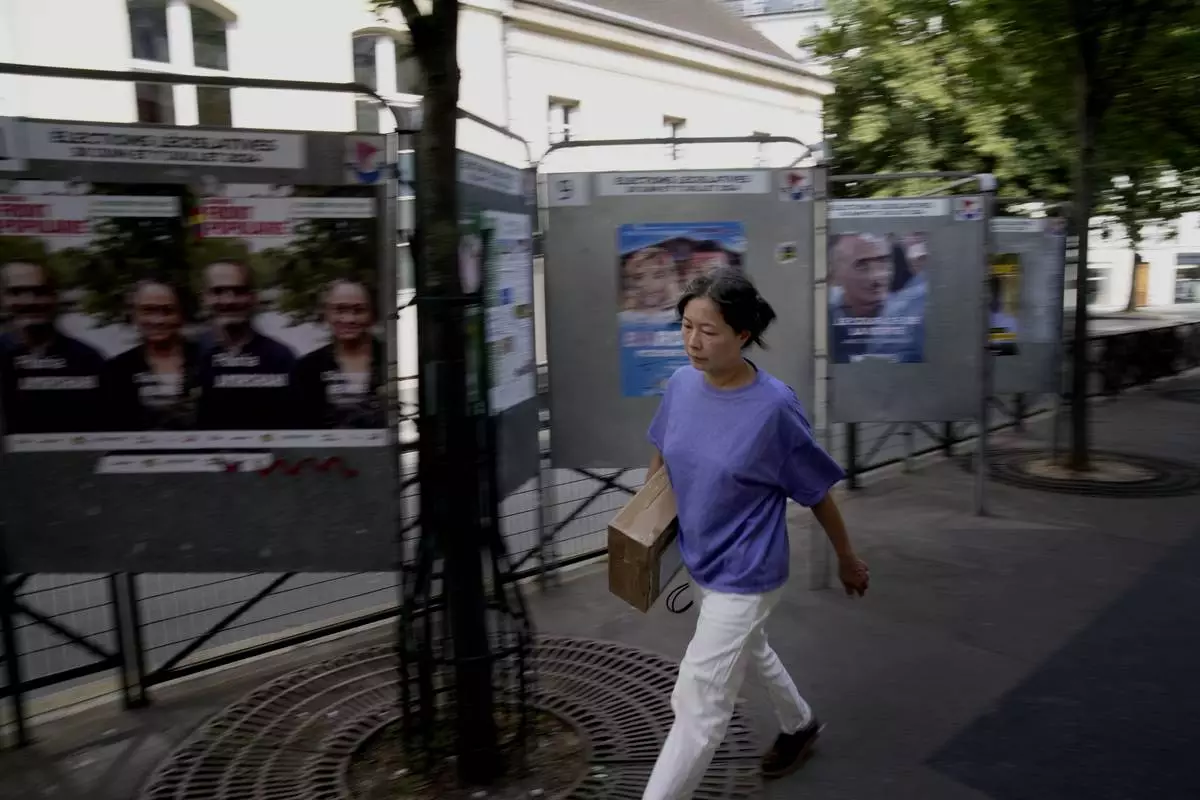
A woman walks past campaign boards for the upcoming parliamentary elections in Paris, Thursday June 27, 2024. Voters will choose lawmakers for the National Assembly in two rounds on June 30 and July 7. (AP Photo/Christophe Ena)
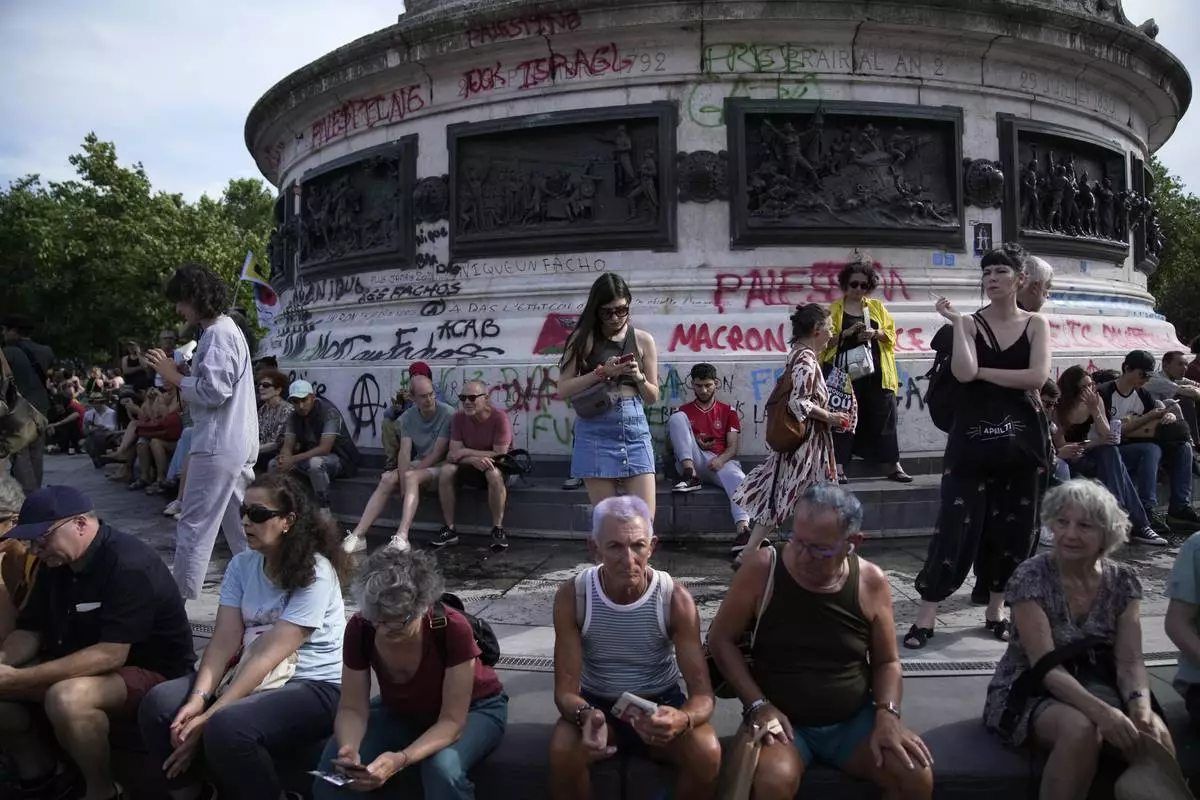
People gather on the Republique Plaza during a rally in Paris, Thursday June 27, 2024. Anti-racism groups joined French unions and left-wing coalition in protests against the surging nationalist far right as French President Emmanuel Macron called snap elections following the defeat of his centrist alliance at European Union elections earlier this month. (AP Photo/Christophe Ena)

FILE - Jordan Bardella, president of the far-right National Front party, arrives at the Eurosatory Defense and security exhibition, Wednesday, June 19, 2024 in Villepinte, north of Paris. The perspective of a defeat in parliamentary elections mean he may have to share power with a prime minister from rival political party — that could possibly be far-right National Rally's president Jordan Bardella. Macron defeated twice the National Rally's leader Marine Le Pen in the presidential election, both in 2017 and 2022.( AP Photo/Michel Euler, File)

FILE - French President Emmanuel Macron, right, meets French far-right Rassemblement National (National Rally) leader Marine Le Pen at the Elysee Palace on June 21, 2022 in Paris. The perspective of a defeat in parliamentary elections mean he may have to share power with a prime minister from rival political party — that could possibly be far-right National Rally's president Jordan Bardella. Macron defeated twice the National Rally's leader Marine Le Pen in the presidential election, both in 2017 and 2022. (Ludovic Marin/Pool photo via AP, File)









